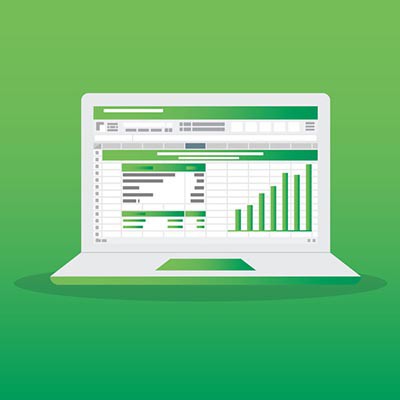Advanced Automation Blog
Small and Medium-Sized Businesses Need to Prioritize Data Management
For the small business, being more efficient with resources can make a massive difference. In fact, it can be the difference between organizational sustainability and organizational failure. The bottom line is that, no matter how big or small they are, today’s businesses need to be smarter to compete. As a result, some businesses have begun to utilize data management platforms (DMP) in order to put themselves in a better position to understand their business, their market, and their customers. Let’s take a look at the DMP, and how it works to help businesses like yours be more effective.
Data Management
The first thing you have to understand about data management is that your business creates and receives a lot of data that it can use. The first problem that you’ll see when attempting to set up comprehensive data management is that your data is likely strewn about around your network. There is data on your old servers, on your new servers, in the cloud, and on disks that all could be used to provide you the best look at your business.
To manage this properly, you’ll first want to identify your storage needs. If you can centralize your storage simply, without incurring too much additional cost, you’ll want to try to do that. If you are worried that you will struggle to find the right data storage solutions, or you need help ascertaining where all your data is, you may want to contact an IT professional like Advanced Automation to help you ascertain your options. Either way, once your data is in one place, this more inclusive data management system will allow you to do a lot more.
Data Warehouse
In order to take advantage of a dynamic new business intelligence (BI) platform, or if you are looking to do some high-end business analysis (BA), you will want to consider setting up a data warehouse. The data warehouse is a centralized database that is used by business intelligence software and data analytics software to gain access to all types of departmental data. By warehousing your data, you can then utilize all types of innovative software to crawl the standing data. This is where BI and BA come in.
What is BI and BA?
It is important that you understand that these two terms are not synonymous. In fact, there is a pretty big difference between the two. Business analysis, or BA, is the act and practices a company goes through to to define why the strategies and processes that have been utilized by the company are performing the way they are. If adjustments are required, the business analyst will identify inefficiencies or ineffectiveness and use the data to help predict an outcome and suggest solutions to help an organization optimize that outcome.
Business Intelligence, while also using your organization’s data, looks into what your company is doing and how it is doing it, rather than why the results are the way they are. BI is the act of choosing certain metrics to mine for, and then using all the available data to ascertain how they go about getting the results they do. In this way BI, is a practice that provides answers using data from past and current business performance, rather than potential performance found with a BA approach.
Backup
No matter how you want to forge your organization’s data management plan, we recommend that you have a comprehensive backup and recovery strategy in place. We offer the BDR service, which incrementally backs up files with periodic changes in two places (locally and in the cloud) so that, in the case of a major data loss disaster, you have fast, reliable access to your data.
If you haven’t started utilizing your company’s data to learn more about your business, consider reaching out to one of Advanced Automation’s professional IT consultants. We can provide you with a more detailed description of data management tools, backup, and recovery; and, how they can work to help you build a better business. Call us today at (770) 448-5400.



Comments